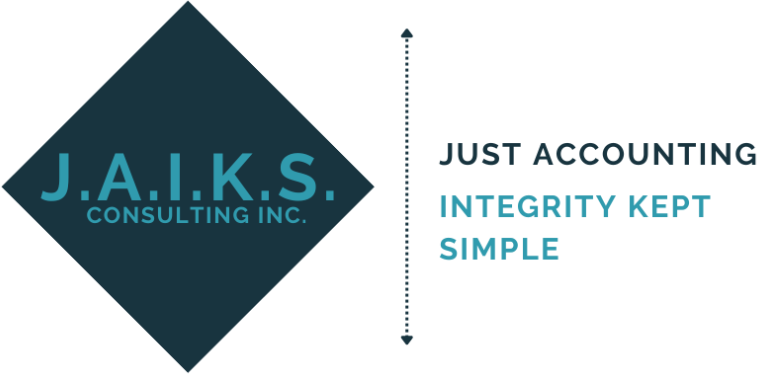J.A.I.K.S. BLOG
Welcome to J.A.I.K.S. Blog, a place where we will provide you with a variety of resources on accounting, taxation and other related subjects suited for both individuals and/or their businesses.
We hope you can find the answers to your questions and/or curiosities, and always know we are here to help if you need more.
Follow us on Facebook or find us on LinkedIn - we are always eager to give you more!
Disclaimer:
The content provided in this blog is for general informational purposes only and is not intended as professional accounting, tax, or financial advice. While efforts are made to ensure the accuracy and timeliness of the content, errors or omissions may occur. The content does not constitute a client-advisor relationship. Readers should consult with a Chartered Professional Accountants or other financial professional for advice tailored to their specific needs. We are not liable for any actions one might take based on the information provided in this blog.
As we spoke about in our last post, as your bookkeeper, we handle the day-to-day financial transactions and record-keeping. Your accountant takes a more analytical and strategic role in interpreting the data, providing financial advice, and ensuring compliance with financial regulations.
Effective record-keeping is crucial for the success of any small business. Proper records not only help you track your financial performance but also ensure compliance with tax regulations and provide valuable insights for making informed business decisions. Here are some best practices for record-keeping in a small business:
We have compiled a list of Tax Changes and adjustments that are anticipated to affect most Canadians in 2024.
The details here offer estimates for elevated payroll taxes, mandatory contributions to the Canada Pension Plan and Employment Insurance. It also covers increases in carbon and alcohol taxes plus the effect of the possible Digital Services Tax.
In Canada, income from selling goods on eBay, or similar platforms such as Kijiji, Etsy, or Amazon, can be taxable, depending on the nature and frequency of the sales. Here are the key factors to consider:




